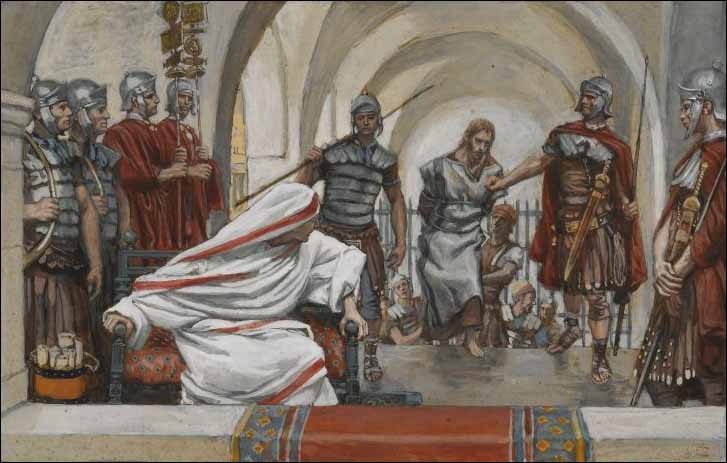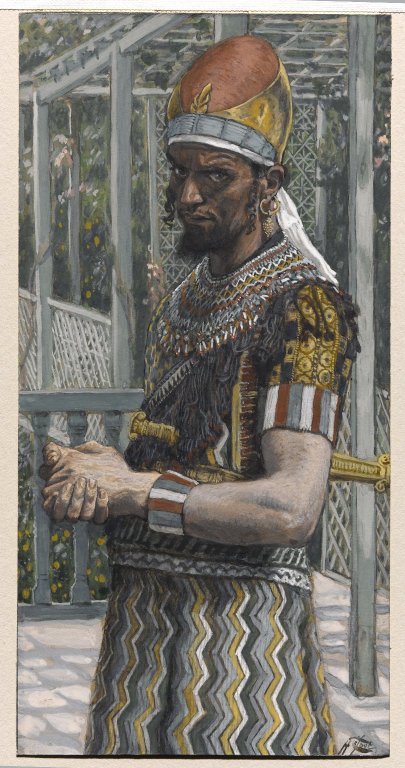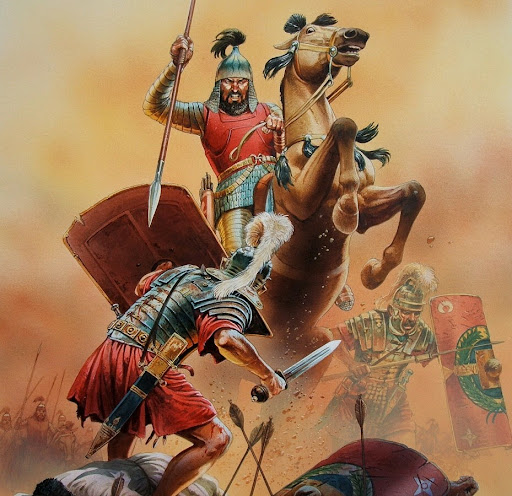Gods and Empires

Trial of Iehochua the Nazarene
Letters of Gnaeus Ambrusius

Trial of Iehochua the Nazarene
Chapter I
Quote from Letter 52Noone knows truly why.
Some said that a roman legionary had raped his partner.
Iehochua of Nazareth was an ordinary carpenter.
And yet, he transformed himself into a fierce warrior.
In the first times, he was nothing more than one of these agitators that we can often find in this country.
But there was something of different in his case.
The hope, I guess.
People began quickly to rally him, wanting to put an end to the so-called oppression of the Romans and of their puppet kings.
Thus, firstly chief of a gang of twelve bandits, the 'Twelve Firsts' as the Jews called them, who operated around Nazareth, he became the leader of a revolt which spread across Galileia and Samareia.
It was only at this moment that the roman authorities really began to fear him.
Fortune seemed to smile on him.
He managed to defeat a tentative from the roman procurator to supress the uprising. The Romans were even about to be thrown into sea but they resisted in the fortified coastal towns. Thereafter, he made preparations to free Hierosolyma, a Holy City for these Jews.
However, in his rise, he hadn't won only allies among the Jewish people.
Since its independance from the Seleucid empire, Iudaea was plagued by divison between factions as Sadducees, Pharisees, Zealots, among others. It's for this reason that we have conquered this country so easily. Of course, conquer is not the same thing that hold.
In the wave of his victories, the Nazarene, claiming to descend from David, a king who is said to have reigned over Iudaea several centuries ago, proclamed himself King. What's more, he proclamed to be the Prophet of Iahweh, their god, while some of the most fervent followers believed to see in him their Messiah, a saviour.
But his fall was as quick as his rise.
The Romans, desparate to put down the rebellion had offered a reward of several thousands of pieces of silver.
Finally, he was betrayed by one of his most trusted lieutenants, one of the 'Twelve Firsts', who is reported to have realized the madness of their enterprise.
Guided by this traitor, the Romans ambushed the Nazarene just before he begins his march upon Hierosolyma, and captured him.
He was brought at Caesarea before Pontius Pilatus, the procurator of Iudaea. After a quick trial, his crucifixion was ordered.
It was during the Passover of 783.
A few days after, Iehudah of Kerioth, the traitor, was found hanged. It is said that taken by remorses, he committed suicide, although others said that the followers of the Nazarene had him murdered.
Without their charismatic leader, the rebels began to lose ground.
Lucius Vitellius, named by Tiberius Caesar as legate of Syria, definitively put down the rebellion one year later.
The surviving 'Twelve Firsts' who attempted to pursue the fight were one by one killed. The last, Shimon, was executed while Herod Agrippa was being crowned King of Iudaea.
Letters of Gnaeus Ambrusius
*****
Nota Bene
About dates:
783 AUC = 30 AD
Nota Bene
About dates:
783 AUC = 30 AD
Last edited:


